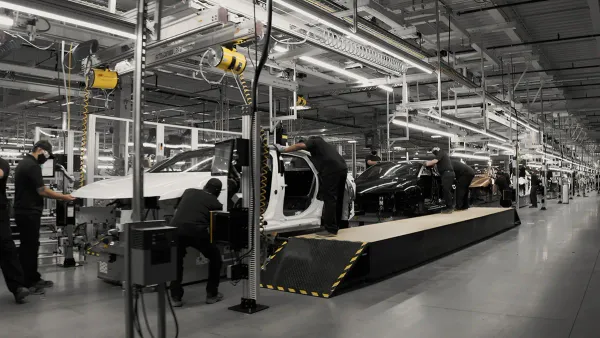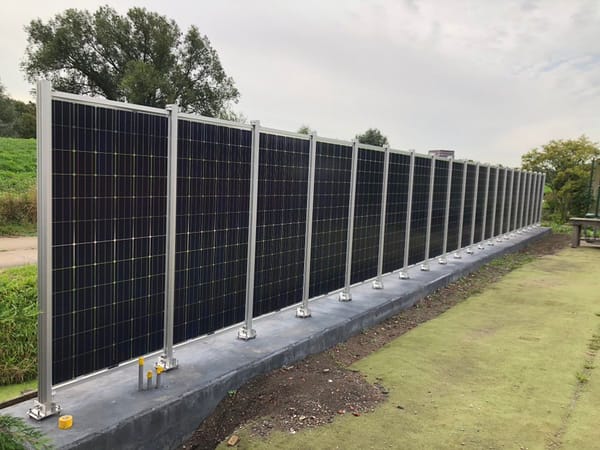18 Truths About Fixing Climate Change That Are On Repeat In The News
Good Afternoon!
Today, as I walked my dog in unseasonably Mediterranean-like weather for a late Chicago September, I thought that if climate change makes Chicago into a warm weather town, that would only benefit the world, because Chicago is so great. Period. Come at me on this one!
-Mike
Thank you for reading Heat Rising. This post is public so feel free to share it.

Fixing climate change is not rocket science. The truth is, most of the technology we need to stop our problems, we already have. Over the last six months, as I’ve been following climate reporting more than ever, I’ve found that I’m often reading essentially the same story again and again.
The larger truth is that almost all the challenges of fixing climate change are about financial or political problems. But these problems are continually repeated by news publications, I suppose, because the reading public hasn’t quite absorbed them yet. So, here’s some of what I’ve seen on repeat, and a few more I’ve noticed in between the lines.
American Climate Efforts
- There’s a backlog of renewable generation interconnections worth 2 terrawatts, about as much as all the current fossil fuel power plants combined. But it’s delayed because utilities don’t want competition for their existing fossil fuel power plants.
- Fixing our lack of electricity transmission would cause electricity prices to plunge and make renewables that much more viable. But we haven’t done it because legislation to fix it has been linked to adding more petroleum pipelines.
- The majority of consumers aren’t going to get into EVs until range anxiety is solved. But when it is, in three or four years, it’ll be almost impossible to sell gas-powered cars.
- Hydrogen is booming because of federal government subsidies but nobody’s quite sure who will buy it. The hope is that if hydrogen is cheap enough, big industrial facilities will want to buy it.
- We’d install a lot more solar if utilities weren’t blocking it through their capture of state legislatures.
- There’s actually quite a bit of rare earth minerals and metals needed for EV batteries in the U.S. and Canada, but to build it out it requires lots of state-backed investment and environmental degradation. China never had a problem with either one and that’s why they lead in minerals production.
- The UAW strike is largely because EVs assembly is less intensive so it requires fewer people than gas cars therefore the UAW is concerned about losing those jobs. As soon as EVs take over the streets, we should expect neighborhood repair shops to disappear.
- Once we transition to green, the U.S. economy will look totally different, from where we buy our snacks, to how long we own a car, to how much money – and to whom – we spend on energy. The secondary effects will be massive and this is probably the biggest reason the American private sector is taking its time to dive into the change.
- Government incentives will get us part of the way to net zero, but we’ll never get all the way there without government mandates. Nobody is quite sure where the political will is to make that happen.
International Efforts
- Under Joe Biden the U.S. will demand high benchmarks for eliminating carbon emissions, but most governments think the U.S. won’t meet them. China will demand lower benchmarks, but will meet them, ultimately doing more than the U.S.
- The developing world doesn’t have the resources to convert to a green economy unless the West (which means mostly the U.S.) pays for it.
- Countries with minerals for EV batteries are the new OPEC nations. The actual OPEC nations are beginning a long slide to economic irrelevance, but they’re going to do everything they can to slow it down – even if that means bespoiling the world.
- The future of the global green economy largely rests on whether the U.S. private sector gets involved. So far it’s been hanging back.
- Chinese companies are dominating green energy development, but so much more private capital still needs to be spent on green energy development. It’s a massive lost opportunity for Western companies.
- Every model to save the world from 2 degrees Centigrade of warming includes carbon capture and sequestration. Yet, nobody knows exactly how the technology will scale up – and if it can to the level needed to be successful.
- Most of the world is talking about a global carbon tax as a near-term reality.
- In order for carbon trading and carbon taxes to work, the world needs a carbon credit system that has the full faith of a global currency. Nobody has any idea how that would work, and what organization would build it
And A Personal Observation
- There’s a dearth of good nonfiction books about the climate challenge, but there’s lots of great science-fiction. (Ministry for the Future is a great place to start
Other Things Happened
- Texas’ energy regulator held back power supplies during this summer’s heat wave, costing consumers as much as $8 billion.
- Meanwhile, 25 U.S. utilities have pledged to cut carbon emissions by 80% by 2030.
- Swiss glaciers lost 10% of volume in worst two years on record
- Researchers have engineered marine bacteria to destroy plastics in seawater
And you made it to the bottom! This Tweet may have ruined the entire movie for me.





